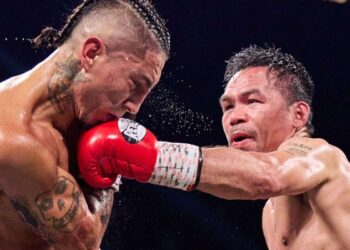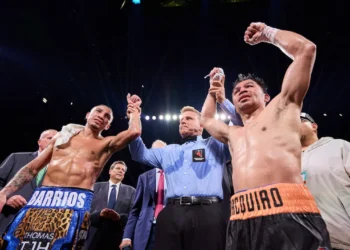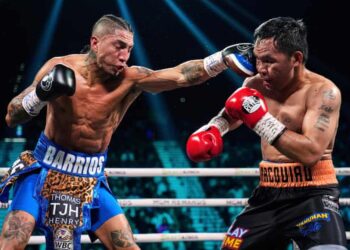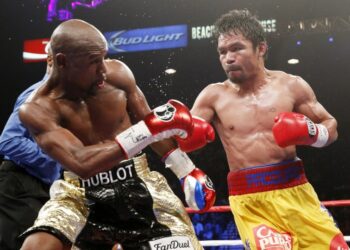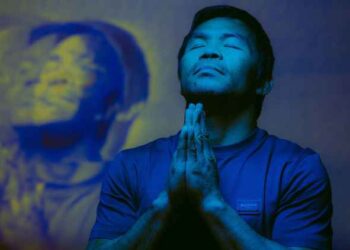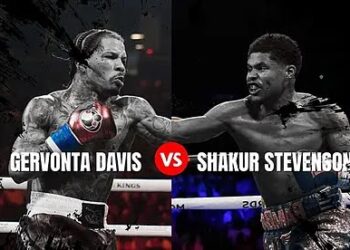When Manny Pacquiao first hinted at a return to the boxing ring, many were skeptical. After all, the Filipino icon, now 46, had long cemented his legacy as an eight-division world champion, a record unlikely to be matched anytime soon. His brief retirement, stint in politics, and occasional exhibition talk left fans and pundits alike wondering if Pacquiao could ever be the same fighter who once dazzled the world with blistering speed and relentless heart.
So when whispers of his comeback began circulating earlier this year, the immediate reaction from critics was predictable: He’s too old. He’s done. He’s risking tarnishing his legacy. Some even questioned whether he had the discipline or motivation to go through a grueling training camp at this stage of his life. But Pacquiao, known for his humility as much as his flurries, chose not to trade barbs or make grand proclamations. Instead, he let his actions do the talking — and did so in the quietest, yet clearest, way possible.
In the weeks leading up to his formal return announcement, Pacquiao didn’t post flashy sparring clips or stage viral social media stunts. He simply went back to the basics: running at dawn through the hills of General Santos City, training in the familiar gym where he built his legend, and reconnecting with old trainers and sparring partners who knew exactly how to push him to his limits.
Those close to his camp reported the same thing: Pacquiao looked sharp. His hand speed, though perhaps not the blur of his 20s, remained a problem for even seasoned sparring partners. His footwork, always one of his greatest assets, still carried that unpredictable bounce. And more importantly, the fire — the one that made him defy odds for decades — hadn’t flickered out.
A short video clip, leaked by a team member but never officially released by Pacquiao himself, showed him landing crisp combinations on the mitts, his trademark grin appearing between rounds. There was no dramatic background music, no editing tricks — just the sound of leather snapping against leather, punctuated by the voice of his long-time trainer Freddie Roach urging him on.
This understated demonstration did more to silence the naysayers than any bold press conference could. It was Pacquiao in his purest form — doing what he has always done: working. Not boasting, not promising knockouts, not calling out opponents with trash talk, but simply showing that when it comes to boxing, he still belongs.
His decision to quietly train and prove his form the old-school way has earned him fresh respect, even from those who once doubted the wisdom of his return. Critics who argued that he would embarrass himself have found themselves revising their takes. Younger fighters who grew up idolizing him are now forced to reckon with the reality that the legend might still be a dangerous opponent inside the ring.
Perhaps what’s most striking about Pacquiao’s subtle response is that it perfectly fits his character. Throughout his career, he has rarely been the loudest voice in the room. He never needed to be. From dethroning Marco Antonio Barrera to surviving wars with Morales, Marquez, and Cotto, Pacquiao has always let his fists speak first and his record stand as the ultimate rebuttal to doubters.
Now, as he prepares for what could be a final run — whether that’s a high-profile exhibition or one last sanctioned fight — Pacquiao has once again reminded everyone that greatness doesn’t always have to announce itself with fireworks. Sometimes, all it takes is a quiet run at dawn, a focused gym session, and a few telling seconds of footage to remind the world that legends may slow down, but they rarely fade quietly.
No matter how this comeback plays out, Manny Pacquiao has already won in one crucial way: he has silenced the doubters not by shouting them down, but by showing — subtly, humbly, and powerfully — that he is still, in ever
y sense, a fighter.

